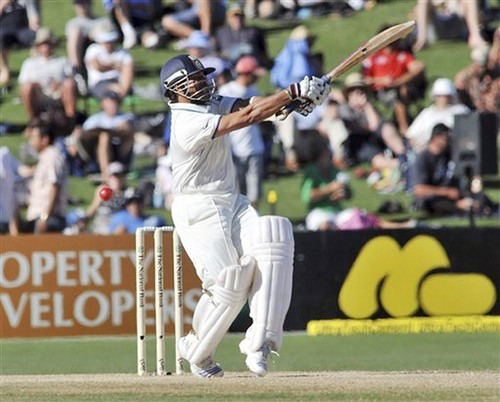India-Pakistan To Resume Cricket Ties: The Fanatic Obsession With A Colonial Sport
ANALYSIS

India and Pakistan are planning to resume bilateral cricket ties after a nearly five-year disruption of such relationships due to the deadly Mumbai terrorist attacks in 2008, which were blamed on a Pakistani-based militant group.
Pakistan cricketers are expected to tour through India in December and January, according to the Board of Control for Cricket in India (BCCI), and participate in three One-Day Internationals and two Twenty-20 matches.
The foreign secretaries of both South Asian giants encouraged the restoration of cricket ties earlier this year.
The One-Day Internationals will be held across India – in Chennai, Delhi and Calcutta, while the T20’s will occur in Bangalore and Ahmedabad.
The Pakistan Cricket Board (PCB) has praised India’s announcement.
The decision is great and we welcome it. It seems that millions of cricket fans have their wishes fulfilled, said PCB chairman Zaka Ashraf in Lahore.
We are still waiting for a BCCI invitation for the series, but it seems it will surely be held later this year.”
Not everyone is happy with the Indian government’s decision to resume athletic competition with Pakistan – indeed, legendary Indian cricketer Sunil Gavaskar, as well as right-wing nationalists, including the Hindu Shiv Sena militant organization, have expressed their fierce opposition to the plan.
However, what may be a more interesting subject lies with the fact that 65 years after independence from Great Britain, cricket (a foreign import and a remnant of colonialism) is more popular in India and Pakistan than ever. In both countries, top cricket stars command wild adulation, huge salaries and everlasting fame.
Cricket is also massively popular in the former British colonies of the Caribbean.
In an essay on cricket, Habibul Haque Khondker, a sociologist at the National University of Singapore, asks: “In the… former British colonies, by and large cricket is a legacy of the British imperialism. It is at once a memento of and a tribute to the colonial rule. One might ask somewhat innocently: if cricket is a colonial imposition why does it remain so popular when the nationalists in the post-colonial societies virulently criticize most other colonial legacies?”
To answer his rhetorical question, Khondker suggests that the popularity of a British sport in the “colonies” does not present a contradiction, but simply reflects the globalization of cultures that imperialism inadvertently wrought.
[The popularity of cricket] shows that colonialism was more than a system of economic exploitation and political domination; it was also an occasion for opening a cultural and sometimes civilizational dialogue which in turn paved the way for cosmopolitan possibilities, he wrote.
Consciously or not, we have become part of a global culture. At one level global culture reflects many of the contradictions and tensions, the fissures that characterize the world today but it also signals the possibility of the development of a truly world-embracing cosmopolitan culture.
Khondker proposes that a young man from Kolkata will be just as comfortable discussing cricket with his Australian or South African counterpart as he would be in discussing Tagore or Shamsur Rahman's poetry with a fellow Bengali from Bangladesh.
Mahatma Gandhi himself was reportedly fond of cricket, especially during his youth. In a newspaper article published in 1958 (ten years after Gandhi's death), a childhood friend of his, Ratilal Ghelabhai Mehta, remembered the future independence leader as a dashing cricketer who evinced a keen interest in the game as a school student and was also good both at batting and bowling.
Thus, after more than two centuries of playing and following cricket, the game (despite its alien origins) has become a deeply-ingrained part of Indian and Pakistani culture. Indeed, the game is so universally popular that its appeal crosses all racial groups, ethnicities, social classes, religions and caste.
Even Shiv Sena, which advocates for Indian nationalism and has agitated for the removal of what it calls corrupt western influences like Valentine's Day, is deeply involved in cricket. Indeed, Shiv Sena's executive president Uddhav Thackeray and his son Aditya have recently purchased two Mumbai Cricket Association clubs - Merry Cricketers and Young Friends Union Cricket Club.
But politics remains a decisive and corrosive influence in South Asian cricket - Shiv Sena has vowed to prevent Pakistani cricketers from touring India.
So long as Pakistan does not change its attitude towards terrorism, there was no point in playing cricket with the neighboring country, said Shiv Sena leader Ramdas Kadam.
Nonetheless, when the Pakistani clubs arrive in India, it is virtually guaranteed that cricket fans in India will follow every moment of every match - as they have for centuries.
© Copyright IBTimes 2024. All rights reserved.





















